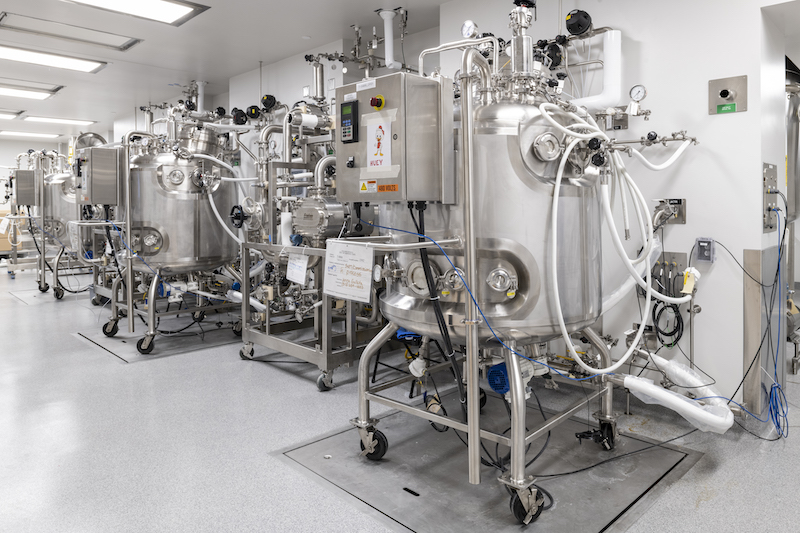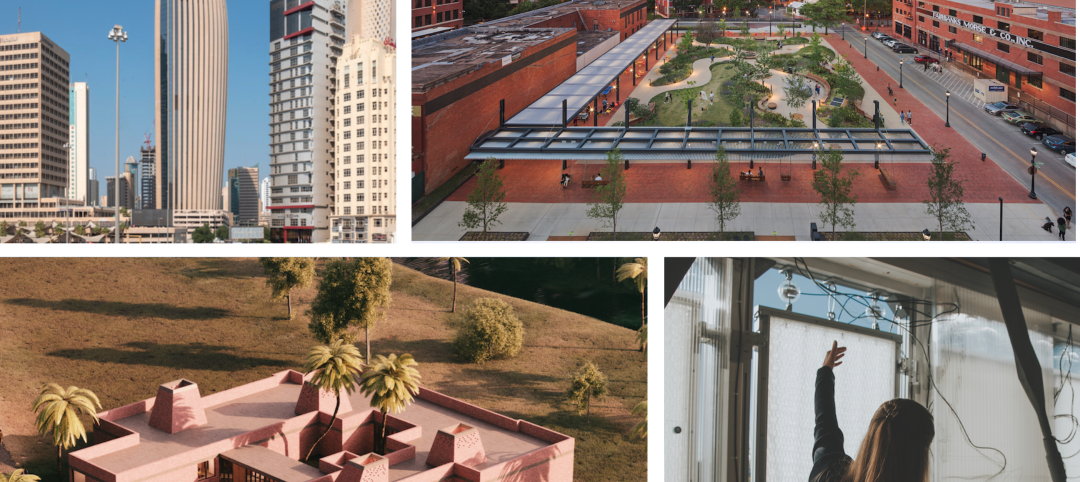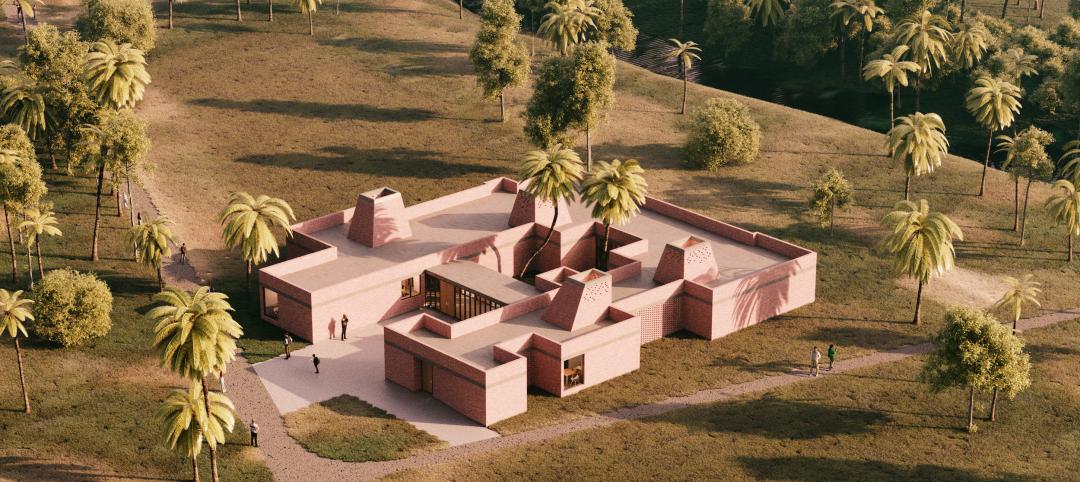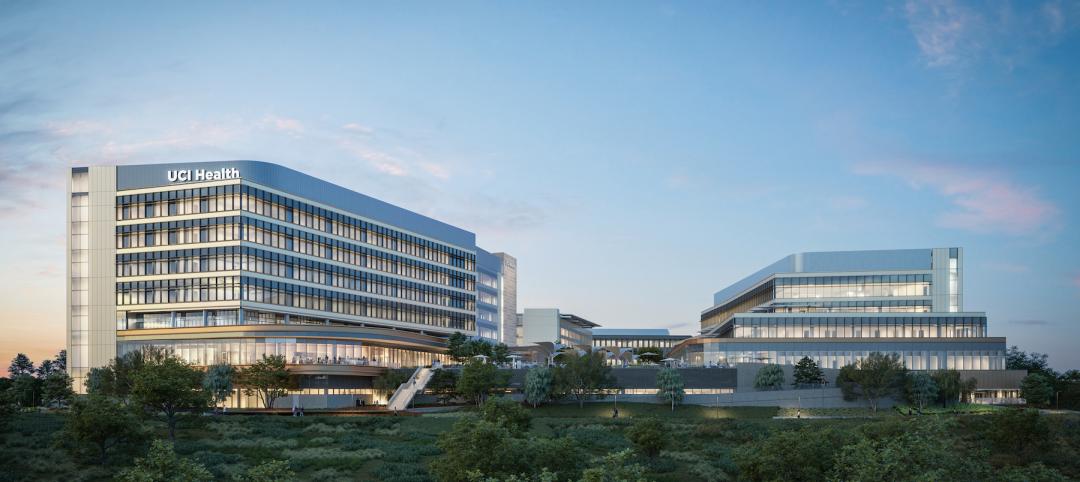More than two-thirds of U.S. households own at least one pet, and more than half own dogs. The American Pet Association estimates that Americans spent a record $99 billion on pet-related expenses in 2020, from food and toys to vet services. The animal care sector is big business that at least one AEC firm has been tapping into for a while.
CRB, headquartered in the heart of the so-called animal health corridor in Kansas City, Mo., has cultivated a specialty for working on biotech facilities that focus on the animal world. In that capacity, CRB has collaborated with a several other AEC firms, such as ESG and Power Construction on Fulton Labs, a life sciences campus in Chicago’s Fulton Market neighborhood. The campus hosts 724,714 rentable sf of dedicated lab and office space with an additional 57,000 sf of top-tier amenity space including a community garden, wellness center and stunning rooftop lounge.
Eric Danielson, CRB’s Director of Business Development, says that growth in this industry sector is coming from several directions that include the post-COVID study of monoclonal antibodies in animals. He adds that there’s also a lot of interest in gene and cell therapies, especially for companion pets. And on the food side, manufacturers are exploring “fresher options” that consumers are demanding and are willing to spend more on. These include alternative protein food types and products that can be sold less expensively at retail.
Danielson says his company is seeing more manufacturers take a holistic approach to animal health by, for example, getting into food products with pharmaceutical elements embedded into the ingredients.

CRB provided design services for this new 96,000-sf animal health biological production facility used to manufacture aerobe bacterins and viral antigens.
MULTIPLE REGULATORY BODIES
Animal care is a highly regulated business that, in the U.S., is overseen by the Food & Drug Administration and the Department of Agriculture. CRB has also worked for clients in Europe, South America, and Asia, each with its own rules and regs. So a big part of CRB’s job, says Danielson, is to make sure that its clients’ projects adhere to their markets’ regulatory requirements.
CRB relies mightily on reality capture, through BIM and Virtual Design and Construction (VDC) to, in Danielson’s words, “provide a digital understanding of the design for the day-to-day user.” These tools also reduced the need for physical on-site visits during the coronavirus pandemic, and are getting clients’ projects up and running faster at a time when speed to market is a critical competitive component.
IPD PRACTITIONER

A CRB employee on-site during the construction phase of a ONEsolution project for a major global animal health company.
To that end, within the past year CRB has rolled out SlateXpace, a platformed modular solution, primarily for multimodal facilities, whose plug-and-play components can be deployed without needing to shut down other parts of the building. “It reduces down time,” says Danielson. (A short video that illustrates how this works can be viewed here.)
CRB is also a proponent of Integrated Project Delivery (IPD) through its ONEsolution approach that brings together the company’s team of designers, engineers, and other experts to control quality, cost, and scheduling by focusing on lean project delivery based on core principles that optimize the client’s capital investment through improved execution, with shared risks and rewards.
Danielson—whose 20-plus years in the AEC space included stints with J.E. Dunn and as a municipal planner—says that his firm strives to avoid “falling into the trap of repeating the same production design standards. This limits innovation.” It is also always looking for ways to eliminate steps for a project to achieve regulatory compliance.
With regard to innovation and fresh thinking, a few weeks ago CRB elected four new members to its Board of Directors, three of whom are from outside the company, its first election of external members. "Together, their insights and fresh perspectives will challenge and strengthen us, resulting in continued high value for our clients and rewarding experiences for our employees," said Ryan Schroeder, CRB’s President.
The outside board members include Tim Hannan, Executive Vice President and CFO of New-Press & Gazette Company; Sandy Price, a retired Senior Vice President of Human Resources at Sprint; and Bob Uhler, a philanthropist and former Chairman of Great Lakes Dredge and Dock.
Related Stories
Design Innovation Report | Apr 27, 2023
BD+C's 2023 Design Innovation Report
Building Design+Construction’s Design Innovation Report presents projects, spaces, and initiatives—and the AEC professionals behind them—that push the boundaries of building design. This year, we feature four novel projects and one building science innovation.
Sustainability | Apr 20, 2023
13 trends, technologies, and strategies to expect in 2023
Biophilic design, microgrids, and decarbonization—these are three of the trends, technologies, and strategies IMEG’s market and service leaders believe are poised to have a growing impact on the built environment.
Design Innovation Report | Apr 19, 2023
HDR uses artificial intelligence tools to help design a vital health clinic in India
Architects from HDR worked pro bono with iKure, a technology-centric healthcare provider, to build a healthcare clinic in rural India.
Healthcare Facilities | Apr 17, 2023
UC Irvine takes sustainability to new level with all-electric medical center
The University of California at Irvine (UCI) has a track record for sustainability. Its under-construction UCI Medical Center is designed, positioned, and built to preserve the nearby San Joaquin Marsh Reserve, to reduce the facility’s solar gain by 85%, and to be the first medical center in the country to operate on an all-electric central plant.
Healthcare Facilities | Apr 13, 2023
Healthcare construction costs for 2023
Data from Gordian breaks down the average cost per square foot for a three-story hospital across 10 U.S. cities.
Healthcare Facilities | Apr 13, 2023
Urgent care facilities: Intentional design for mental and behavioral healthcare
The emergency department (ED) is the de-facto front door for behavior health crises, and yet these departments are understaffed, overwhelmed, and ill-equipped to navigate the layered complexities of highly demanding physical and behavioral health needs.
Urban Planning | Apr 12, 2023
Watch: Trends in urban design for 2023, with James Corner Field Operations
Isabel Castilla, a Principal Designer with the landscape architecture firm James Corner Field Operations, discusses recent changes in clients' priorities about urban design, with a focus on her firm's recent projects.
Market Data | Apr 11, 2023
Construction crane count reaches all-time high in Q1 2023
Toronto, Seattle, Los Angeles, and Denver top the list of U.S/Canadian cities with the greatest number of fixed cranes on construction sites, according to Rider Levett Bucknall's RLB Crane Index for North America for Q1 2023.
Contractors | Apr 10, 2023
What makes prefabrication work? Factors every construction project should consider
There are many factors requiring careful consideration when determining whether a project is a good fit for prefabrication. JE Dunn’s Brian Burkett breaks down the most important considerations.
Architects | Apr 6, 2023
New tool from Perkins&Will will make public health data more accessible to designers and architects
Called PRECEDE, the dashboard is an open-source tool developed by Perkins&Will that draws on federal data to identify and assess community health priorities within the U.S. by location. The firm was recently awarded a $30,000 ASID Foundation Grant to enhance the tool.
















